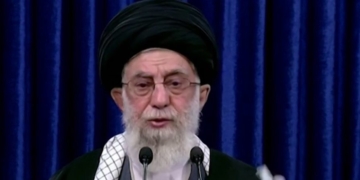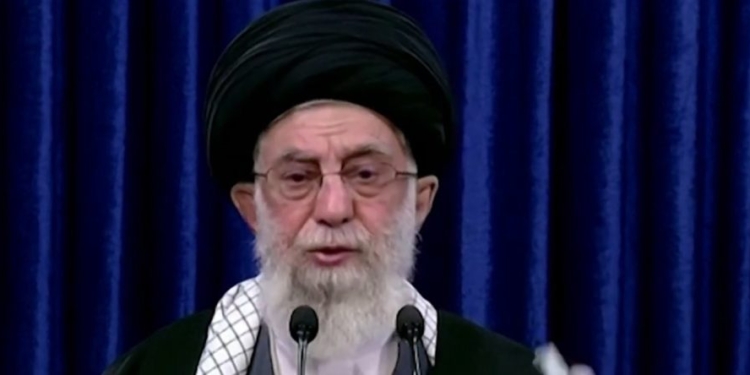Iraqi banks funneled money to Iran and its terrorist group allies using a U.S.-created reserve system, according to the results of an investigation by The Wall Street Journal.
Following the invasion of Iraq in 2003, the U.S. created a unique system to hold Iraq’s earnings from its oil sales at the New York Federal Reserve, which would subsequently be sent back to the country’s banks in the form of electronic or physical U.S. currency; this process was meant to help track international transactions from Iraq and ensure that they weren’t sent to bad actors such as Iran, according to the WSJ. But a loophole in the system created a gap where transactions couldn’t be tracked, and a large portion of the funds likely ended up in Iran or with its terror proxies, which is in violation of U.S. sanctions.
“Iran continues to seek to abuse the international financial system not only in Iraq, but throughout the region, and frankly wherever they have the opportunity to do so,” Brian Nelson, former undersecretary of the Treasury for terrorism and financial intelligence, told the WSJ.
Iran Increases Cyber Activity Meant To Sway US Voters Ahead Of Election, Microsoft Warnshttps://t.co/T2pKc2nNcd
— Daily Caller (@DailyCaller) August 10, 2024
The U.S.-created system didn’t rely on typical banking and transaction methods — given the unique nature of the situation – and did not require records of the final recipient of wire transfers from Iraqi banks, according to the WSJ. That opened a vacuum where billions of dollars worth of transactions from Iraqi banks to other international recipients became untraceable.
One handful of banks, owned by business tycoon Ali Ghulam, wired hundreds of millions abroad on an almost daily basis over the course of a decade, but were shut down in 2022 after the U.S. government began looking closely at transactions, roughly 80% of which were untraceable and some of which went to Iran’s military and the country’s terror proxies, according to U.S. officials familiar with the matter who spoke to the WSJ. Ghulam has denied that his banks were knowingly involved in a money laundering scheme or were sending funds to Iran; he now lives in London and has faced no legal repercussions.
“The system is bad, but every bank in Iraq was operating under the same system,” Ghulam said in an interview, according to the WSJ. “Why did the Americans bring this system?”
Ghulam’s banks are among the two dozen other Iraqi banks that have been barred by the U.S. from facilitating dollar transactions, according to WSJ. A high-level U.S. Treasury official told a group of Iraqi officials in January that Iraqi banks had “deliberately exploited” the system in place that provided them with American currency, warning that it was benefitting the Iranian military and terrorist groups who have recently been involved “ongoing attacks” against U.S. forces in the Middle East.
Audits reviewed by WSJ didn’t point to who exactly received funds from Ghulam’s respective banks, but anonymous individuals “knowledgeable about the Iraqi financial sector” told auditors that he has ties “Iran and Iranian-backed militia groups,” according to WSJ. One individual told auditors that Ghulam delivered over $1 billion to Iran in 2021.
The Federal Reserve in New York still processes transactions for some Iraqi banks, although recipients are now verified, according to the WSJ. But Iran is still seeking to find loopholes to access the banks, according to Nelson.
Iran has found various ways to skirt sanctions and make windfalls of cash, particularly under the Biden administration’s foreign policy. The Biden administration has chosen not to strictly enforce oil sanctions against Iran, allowing the Islamic regime to bring in tens of billions since 2021. The Biden administration has also unlocked billions of dollars for Iran in specific instances, such as in a 2023 deal to free several American hostages.
All content created by the Daily Caller News Foundation, an independent and nonpartisan newswire service, is available without charge to any legitimate news publisher that can provide a large audience. All republished articles must include our logo, our reporter’s byline and their DCNF affiliation. For any questions about our guidelines or partnering with us, please contact [email protected].



























 Continue with Google
Continue with Google